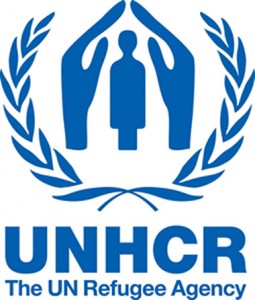UNHCR says 79.5 million refugees displaced in 2019
 The UNHCR, the UN Refugee Agency, on Thursday said 79.5 million refugees were displaced as at the end of 2019.
The UNHCR, the UN Refugee Agency, on Thursday said 79.5 million refugees were displaced as at the end of 2019.
The UNHCR Global Trend report released and copied to the Ghana News Agency in Accra also revealed diminishing prospects for refugees when it comes to hopes of any quick end to their plight.
The UNHCR’s annual Global Trends is released as a prelude to the commemoration of the World Refugee Day on June 20th.
The report is released in parallel with its annual Global Report, which focuses on actions UNHCR is taking to address the needs of all who are forced to flee, as well as the world’s known stateless populations.
In the 1990s, on average 1.5 million refugees were able to return home each year. Over the past decade that number has fallen to around 385,000, meaning that growth in displacement is today far outstripping solutions.
The UNHCR appealed to countries worldwide to do far more to find homes for millions of refugees and others displaced by conflict, persecution or events seriously disturbing public order.
The report showed that forced displacement is now affecting more than one per cent of humanity – one in every 97 people – and with fewer and fewer of those who flee being able to return home.
The report also shows that of the 79.5 million who were displaced at the end of last year, 45.7 million were people who had fled to other areas of their own countries.
The rest were people displaced elsewhere, 4.2 million of them being people awaiting the outcome of asylum requests, while 29.6 million were refugees and others forcibly displaced outside their country.
The report said the annual increase, from a figure of 70.8 million at the end of 2018, is a result of two main factors; first is worrying new displacement in 2019, particularly in Democratic Republic of the Congo, the Sahel, Yemen and Syria – the latter now in its tenth year of conflict and accounting on its own for 13.2 million refugees, asylum seekers, and internally displaced people, fully a sixth of the world’s total.
The second is a better presentation of the situation of Venezuelans outside their country, many of whom are not legally registered as refugees or asylum-seekers, but for whom protection-sensitive arrangements are required.
The report said 100 million people at least were forced to flee their homes in the past decade, seeking refugee either in or outside their countries; Forced displacement has almost doubled 41 million in 2010 now 79.5 million.
It said 80 per cent of the world’s displaced people are in countries or territories affected by acute food insecurity and malnutrition – many of them countries facing climate and other disaster risk.
The report said more than three-quarters of the world’s refugees 77 per cent are caught up in situations of long-term displacement – for example the situation in Afghanistan, now in its fifth decade.
More than 85 per cent refugees are in developing countries, generally a country neighbouring the one they fled; five countries account for two-thirds of people displaced across borders: Syria, Venezuela, Afghanistan, South Sudan and Myanmar.
The Global Trends Report counts all major displaced and refugee populations, including the 5.6 million Palestine refugees who fall under the care of the United Nations Relief and Works agency for Palestine.
Source: GNA
